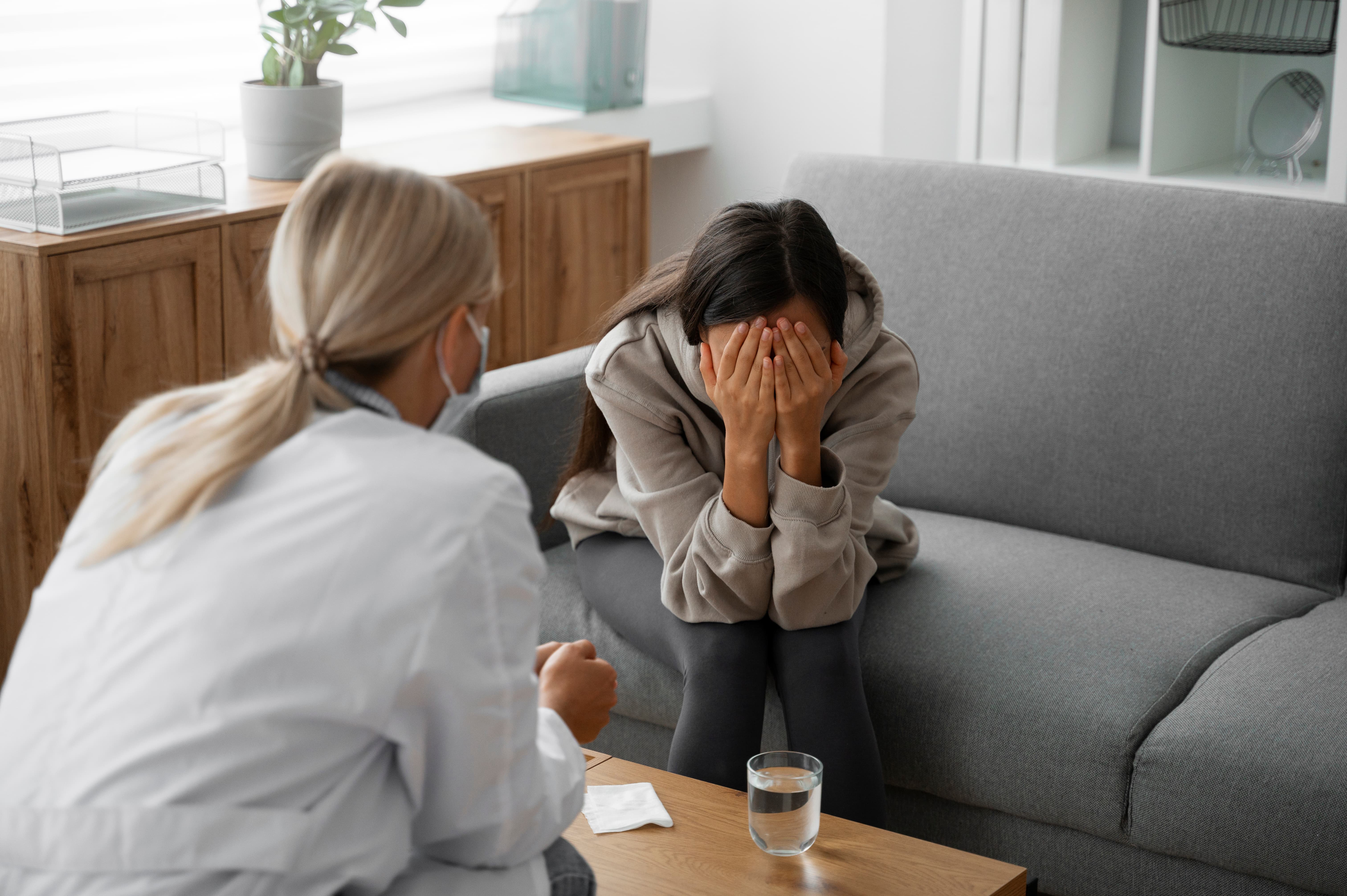Recovery from heroin addiction without medication is possible but difficult. Success often requires intensive counseling, strong peer support, and structured routines. Without medication, withdrawal symptoms and relapse risks increase, making professional guidance and community support essential for lasting sobriety.
Below, we’ll look into what it takes to recover without medication, the challenges you can expect, and how treatment for heroin addiction can support a safer, more realistic choice for long‑term sobriety.
It’s Possible to Recover From Heroin Addiction Without Medication
Some people want to try recovery without medication. While this can work for a few, it usually requires strong support and structured care to be safe and sustainable.
Learn From Real Stories of Medication‑Free Recovery
Medications like buprenorphine and methadone are proven to improve treatment for heroin addiction, but some people reach long‑term sobriety using behavioral approaches alone.
Successes often involve:
- Intensive individual and group counseling
- Consistent participation in peer support or 12‑step programs
- Highly structured daily routines and supervision
Personal accounts show that people who have tried multiple heroin addiction treatments and relapsed can sometimes maintain recovery after committing to therapy and peer support. These stories are rare, but they offer hope for those who cannot access or are not ready for medication-assisted treatment.
Recognize the Challenges of Going Without Medication
Quitting heroin without medication is extremely hard and carries high risks. People often face:
- Severe withdrawal symptoms and cravings
- Physical illness, poor sleep, and mood swings
- Greater risk of relapse or overdose
Major health organizations warn that stopping “cold turkey” can make daily life unmanageable and increase overdose risk after relapse. Experts usually recommend structured treatment for heroin addiction with close monitoring and strong community support for anyone attempting an abstinence‑only approach.

How Withdrawal Symptoms Make Drug‑Free Recovery Difficult
Heroin withdrawal can start quickly, often 6 to 12 hours after the last dose. Symptoms can be intense and make people feel like they have no choice but to use again. Typical phases include:
- Early hours (6–12 hours): Anxiety, sweating, yawning, and muscle aches
- Peak (1–3 days): Nausea, cramps, vomiting, chills, and rapid heartbeat
- Later days (up to a week or more): Ongoing fatigue, cravings, and sleep problems
These symptoms can cause dehydration, racing heart, and extreme discomfort, making daily life hard to manage. Even after the worst physical effects pass, lingering cravings and restlessness can last for weeks.
Manage Cravings to Reduce the Risk of Relapse
Heroin changes the brain’s reward system, leaving people with powerful urges long after withdrawal ends. Studies show that those attempting natural recovery during heroin treatment face high relapse risks, especially when stressed or exposed to reminders of use.
Lasting success often depends on structured heroin addiction treatments with therapy and peer support. Without that support, cravings can overwhelm even the strongest intentions, pulling many back into heroin use.
Using Therapy and Peer Support to Stay Sober
Evidence‑based therapies can help rewire the patterns that fuel heroin use. Common approaches include:
- Cognitive Behavioral Therapy (CBT): Teaches how to recognize and change thoughts that trigger drug use
- Motivational Enhancement Therapy (MET): Helps build commitment and confidence in recovery
- Contingency Management: Offers rewards for meeting sobriety milestones
These therapies provide practical ways to manage cravings, avoid risky situations, and improve emotional stability. National guidelines recommend using them alongside or even without medication‑assisted treatment because they give people the skills to handle daily triggers and stay engaged in recovery.
Join Peer Groups to Strengthen Recovery Commitment
Peer support creates connection and accountability for anyone pursuing treatment for heroin addiction without medication. Meetings offer a safe space to share struggles, hear success stories, and develop routines that reinforce sobriety.
While peer groups don’t replace professional therapy, they help people manage triggers, celebrate progress, and maintain the motivation needed to stay sober over time.
Comparing Medication‑Assisted Treatment and Abstinence Approaches
Finding the right approach to recovery often comes down to personal needs and readiness. Understanding the difference between MAT vs abstinence can help people and families make informed choices.
MAT vs Abstinence: A Review
Research shows that Medication‑Assisted Treatment (MAT) leads to better outcomes than abstinence‑only approaches for opioid use disorder. Studies report:
- About 438 days average retention in MAT programs versus around 174 days for abstinence.
- About 49% of MAT patients avoid relapse long‑term, compared to around 7% in abstinence‑only care.
MAT combines medications with counseling to stabilize brain chemistry, reduce cravings, and lower the risk of overdose. By contrast, strict abstinence without medication often comes with higher dropout rates and a greater chance of relapse. Leading health authorities recommend MAT for most people pursuing recovery because it increases safety and long‑term success.
Explore Natural Recovery and Harm‑Reduction Options
Some people choose to pursue natural recovery or rely on harm‑reduction strategies when formal heroin treatment or medications are not an option. These approaches focus on:
- Gradually reducing or stopping heroin use
- Practicing safer behaviors to lower overdose risk
- Seeking support from education, peer groups, or community programs
While long‑term success rates are lower than clinical treatment, harm‑reduction and natural recovery methods can still lead to meaningful improvements in health and daily functioning. They also provide a valuable bridge for those not yet ready for medications or full abstinence.

Treatment for Heroin Addiction Without Relying on Medication
Some people choose to recover from heroin without using medication. This can be challenging, but having structure and support greatly improves the chances of long‑term success.
Follow Structured Therapy Plans and Family‑Based Support
A clear plan is important when pursuing medication‑free recovery. At New Horizons Recovery Centers, our clients can access:
- Intensive outpatient therapy with individual and group counseling
- Family therapy to strengthen home support
- Aftercare planning with relapse‑prevention tools and regular check‑ins
Evidence shows that combining behavioral counseling with active family involvement improves outcomes for those working toward abstinence. Structured aftercare, including crisis resources and routine follow‑ups, helps people stay resilient once treatment ends.
Build a Sober Lifestyle Through Community and Wellness Activities
Recovery doesn’t end after therapy sessions. Many people in treatment for heroin addiction without medication benefit from building a fulfilling sober lifestyle. This can include:
- Joining peer support or sober activity groups
- Participating in volunteering, arts, or community projects
- Engaging in wellness programs like The Phoenix, which combines exercise with peer support
Social connection is a powerful protector against relapse. Consistent involvement in recovery‑focused activities and supportive communities reduces substance use and builds confidence, creating a strong foundation for lasting abstinence.
End the Cycle Before It Takes More
Can you recover from heroin addiction without medication? Recovery is possible, but it is extremely difficult and far safer with structured therapy and strong support. Treatment for heroin addiction in Pennsylvania provides the tools to manage withdrawal, control cravings, and build a stable, sober life.
New Horizons Recovery Centers offers evidence‑based care and supportive programs designed to guide you every step of the way. Contact us today to begin a treatment plan that helps you achieve lasting recovery with the support you need.

-ink.jpeg)
-ink.jpeg)
-ink.jpeg)
-ink.jpeg)
-ink.jpeg)
-ink.jpeg)
